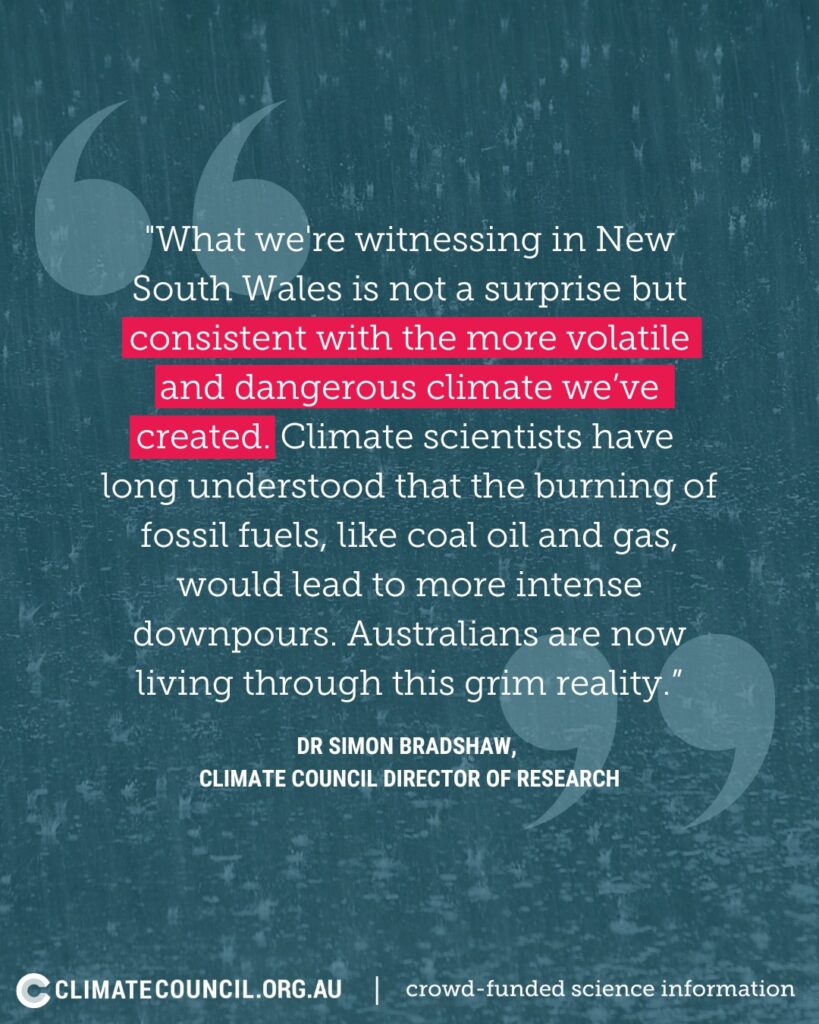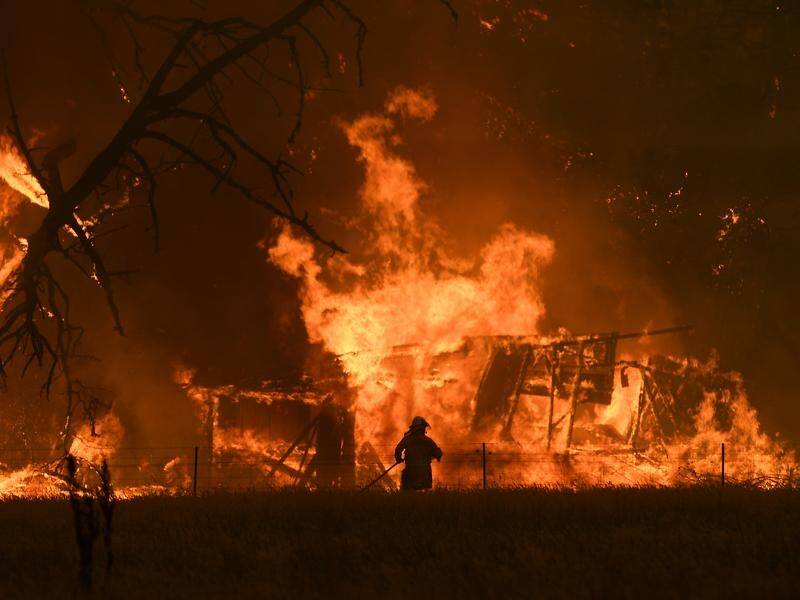The recent downpours and floods inundating Illawarra and western Sydney communities, declared a national disaster by the NSW government, are a stark reminder of the escalating threats posed by climate change, caused by the burning of coal, oil and gas.

The Climate Council warns that these devastating events bear all the signs of a warming planet and urges a redoubling of efforts to drive down climate pollution.
Climate Council Head of Research Dr Simon Bradshaw said: “What we’re witnessing in New South Wales is not a surprise but consistent with the more volatile and dangerous climate we’ve created. Climate scientists have long understood that the burning of fossil fuels, like coal oil and gas, would lead to more intense downpours. Australians are now living through this grim reality.
“Extreme weather events, fuelled by climate change, are becoming more frequent and intense, leaving communities vulnerable and unprepared.
“Communities are being hit by more frequent disasters, from floods to fires and back again, leaving less time to recover. The economic and emotional toll on affected areas is mounting. Like all climate-fuelled disasters, intense rainfall and flooding have devastating consequences for communities, businesses and the economy.”
The extreme east coast floods of 2022 cost every Australian household an average of $1,532, with the Lismore local government area (LGA) incurring costs of $508 million (Source: Data from The Mckell Institute and Insurance Council of Australia).
Recent polling done by the Climate Council found that 1 in 3 Australians report being worried that they may have to permanently relocate because of extreme weather. Additionally, one in ten Australians has been forced to move, either temporarily or permanently, from their homes due to extreme weather, underscoring the tangible impact of climate events on individuals
“Our decisions today will determine the safety and wellbeing of our communities tomorrow. New Climate Council research shows we can cut Australia’s climate pollution by 75% by 2030, and play a major positive role in global efforts to tackle the climate crisis,” said Dr Bradshaw.
“We can’t keep flooding our children’s futures. Stronger, faster cuts in climate pollution today can prevent the worst future harms. At the same time, we must step up our investments in climate change adaptation and disaster preparedness.”
The Climate Council is Australia’s leading community-funded climate change communications organisation. We provide authoritative, expert and evidence-based advice on climate change to journalists, policymakers, and the wider Australian community.


